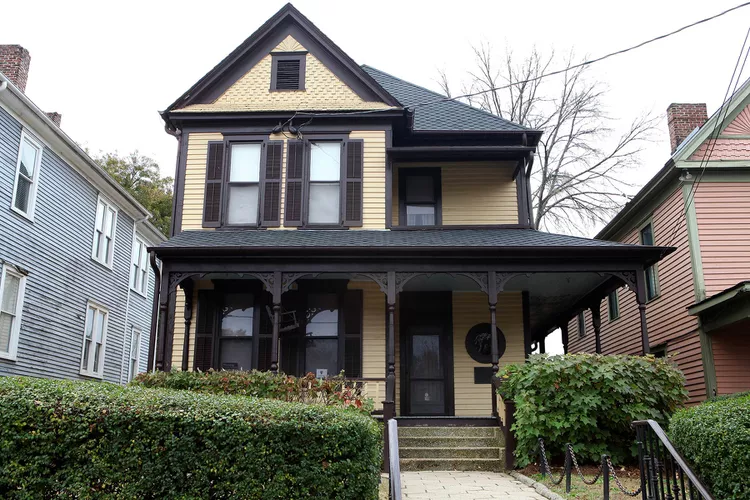Summary
Overview of Dr. King’s Early Life
Before he left an indelible mark on American history, Martin Luther King, Jr. spent his early days in Atlanta in a neighborhood surrounding Auburn Ave. that locals referred to as “Sweet Auburn.” Today, the area has been memorialized as a Martin Luther King, Jr. National Historic Park, which has become one of the capital of Georgia’s most popular attractions.
Dr. King’s Birth Home
The 35-acre area includes some of the most formative sites of Dr. King’s life, starting with his birth home at 501 Auburn Ave. This 2-story Queen Anne-style home with a wrap-around porch was built in 1895 and was bought by his maternal grandfather in 1909 for $3,500. His father moved in with his mother and parents after their 1926 wedding, and Dr. King was born at the family home on Jan. 15, 1929, spending the first 12 years of his life there.
The only way to step inside the home is on a ranger-led tour. With modified pandemic restrictions, the tour runs Mondays through Saturdays between 10 a.m. and 4 p.m. and is limited to 10 people. (Only 10 minutes of the 30-minute tours will be indoors.) Visitors are advised to arrive early in the week and earlier in the day to secure a spot at the visitor center.
Ebenezer Baptist Church
While waiting for the tour, visitors can explore other sites on the premises, like the notable Ebenezer Baptist Church, located at 407 Auburn Ave. This is where Dr. King was baptized and ordained as a minister when he was 19 after delivering a trial sermon to his own congregation. Although he left to attend Crozer Theological Seminary, he later returned and became co-pastor with his father, Rev. Martin Luther King Sr., in 1960. Following his death in 1968, Dr. King’s funeral was also held at this beloved church.
Fire Station No. 6
Also on-site is Fire Station No. 6, which was built in 1894 and served the neighborhood until 1991. The station, which played a major role in the desegregation of the Atlanta Fire Department, has an American LaFrance fire engine from 1927 on view.
MLK Jr. World Peace Rose Garden
The National Historical Park hosts the MLK Jr. World Peace Rose Garden, planted in 1992 with 185 roses as part of the International World Peace Rose Gardens program to instill the importance of peace in future generations. The garden artistically reflects Dr. King’s life and ideals of peace through nonviolence.
Every year, a youth peace poetry contest is held, with the winning poem showcased in the garden for a year. The garden’s starburst design draws attention to the brilliance of Dr. King’s ideals using the official flower of the United States, the rose.
The Behold Monument
Another symbolic stop is the Behold monument, unveiled in 1990 by Dr. King’s widow, Coretta Scott King. It depicts the ancient African tradition of holding a newborn up to the heavens and proclaiming, “Behold the only thing greater than yourself.” The artistic vision of sculptor Patrick Morelli honors aspects of Dr. King’s character, including his moral courage and his dignity in the face of adversity.
The King Center
To preserve Dr. King’s legacy, Mrs. King established The Martin Luther King, Jr. Center for Nonviolent Social Change in 1968, located on the National Park Service grounds. She envisioned it as a living memorial filled with vitality, committed to the causes for which he lived and died. This site houses Dr. and Mrs. King’s crypts along with The Eternal Flame which symbolizes the ongoing effort to realize Dr. King’s vision of a just and peaceful community.
Currently, while operations at the visitors center are limited (its theater and D.R.E.A.M. Gallery are closed), the “Courage To Lead” exhibit is an insightful journey tracking Dr. King’s path alongside the Civil Rights Movement. Additionally, the lobby features a “Children of Courage” exhibit designed for younger visitors.
Visiting Information
Admission to the park is always free. Those driving can park in the lot on John Wesley Dobbs Avenue, or visitors using public transport can ride the Atlanta Streetcar, which stops at the Martin Luther King Jr. National Historical Park.
For additional details on the Martin Luther King, Jr. National Historic Park, please visit its NPS site or The King Center.




